AB is part of a circuit as shown that absorbs energy at a rate of 50W. E is an emf device that has no internal resistance.
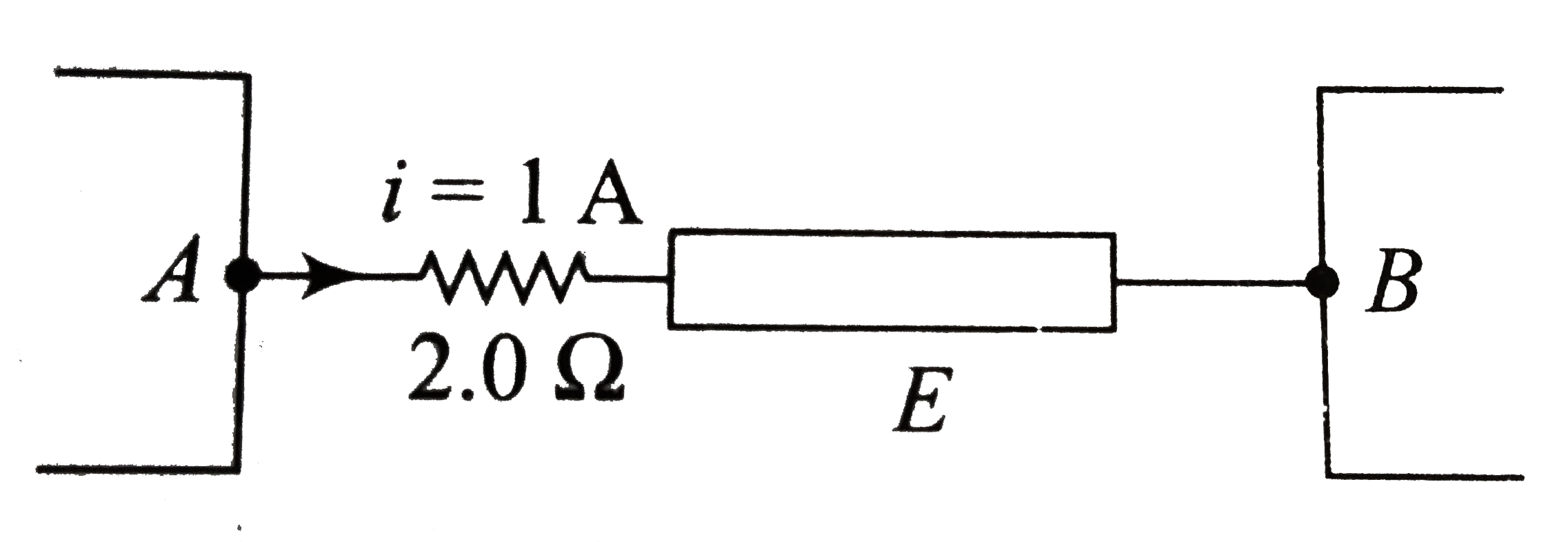
Potential difference across AB is 48V.
Emf of the device is 48 V.
Point B is connected to the positive terminal of E.
Rate of conversion from electrical to chemical energy is 48 W in device E.
The correct Answer is:B, D
b.,d.
Resistance absorbs energy at the rate of 2 W.
Potential difference across AB is VAB. I = 50W.
VAB=50V
Drop across resistor is 2V, therefore emf of E is 48 V.
As AB is absorbing energy at the rate of 50 W, 48W is being
absorbed by E. Thus, E is on charging i.e., current is entering
from positive terminal of E.
Similar Questions
In Fig 27-52, circuit section AB absorbs energy at a rate of 50W when current i=2.0A through it is in the indicated direction. Resistance R=2.0Ω, (a) What is the potential difference between A and B? Emf device X lacks internal resistance. (b) What is its emf? (c) is pont B connected the positive terminal of X or to the negative terminat?

View SolutionIn figure circuit section AB absorbs energy at the rate of 5.0W when a currenti=1.0A passes through it in the indicated direction.
(a) What is the potential difference between points A and B?
(b) Emf device X does not have internal resistance. What is its emf?
(c) What is its polarity (the orientation of its positive and negative terminals)?

View Solution
Knowledge Check
AB is part of a circuit as shown, that absorbs energy at a rate of 50 W.E is an emf device that has no internal resistance.
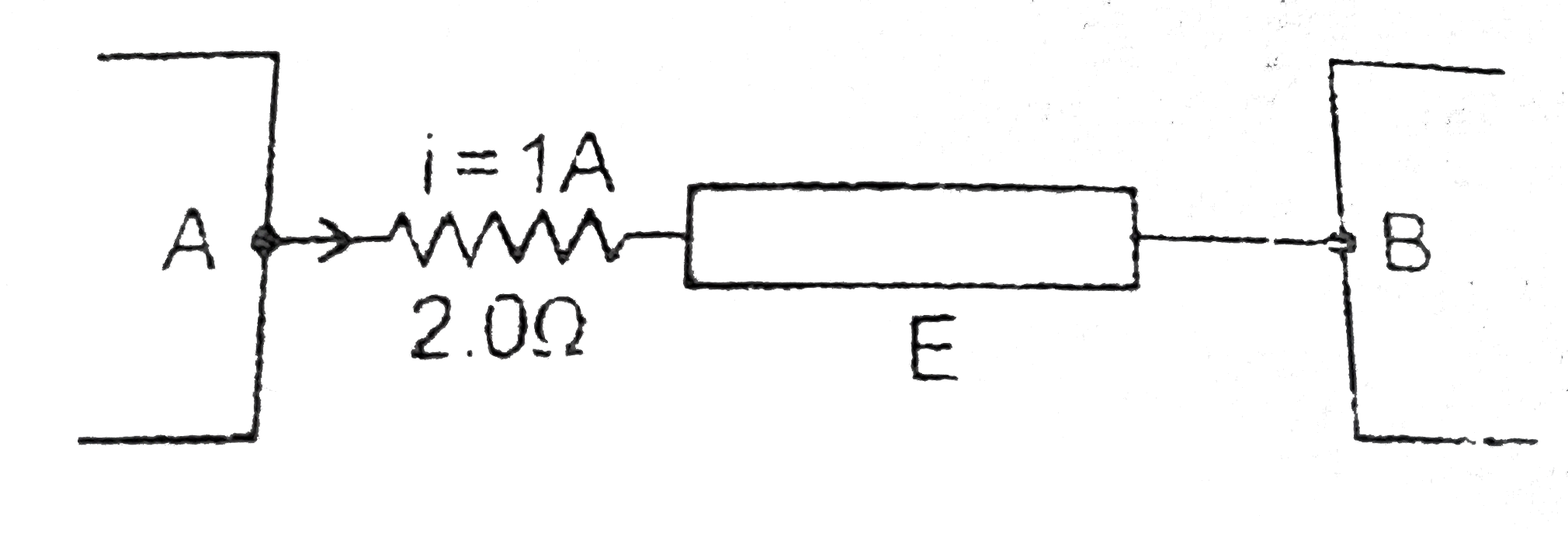 APotential difference across AB is 48 VBEmf of the device is 48 VCPoint B is connected to the positive terminal of EDRate of conversion from electrical to chemical energy is 48 W in device E
APotential difference across AB is 48 VBEmf of the device is 48 VCPoint B is connected to the positive terminal of EDRate of conversion from electrical to chemical energy is 48 W in device EIn the circuit shown in fig. the cell has emf 10V and internal resistance 1Ω
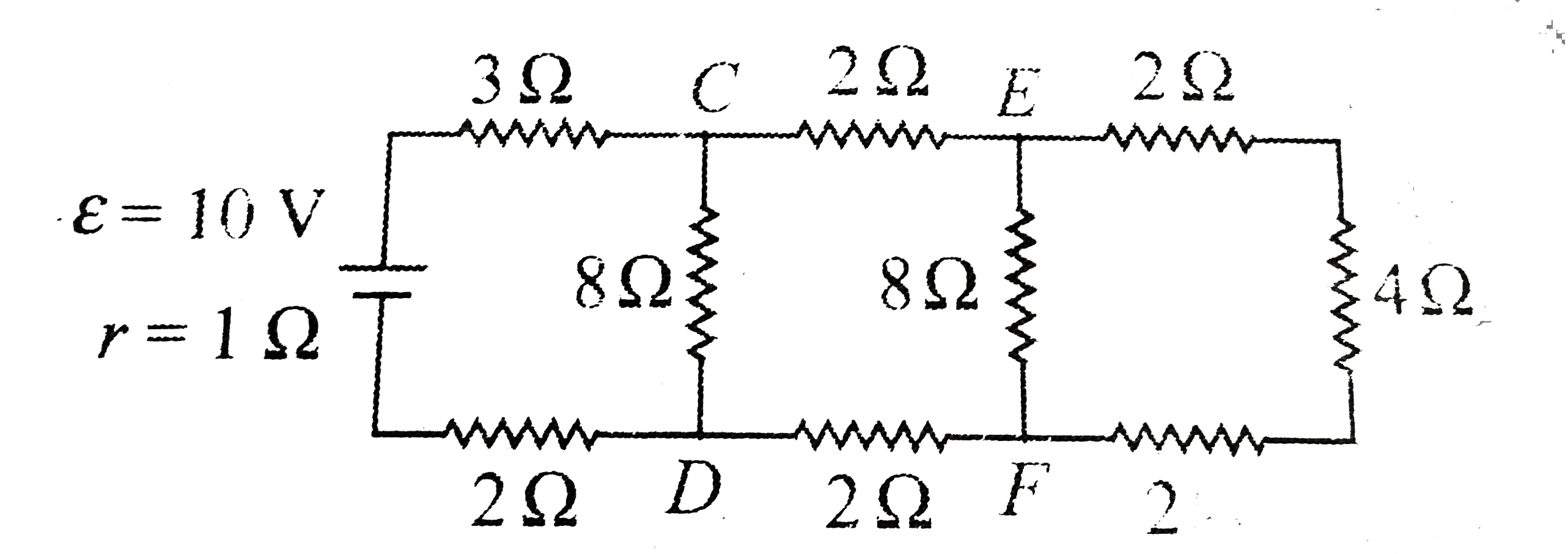 AThe current through the 3Ω resistor is 1A.BThe currents through the 3Ω resistor is 0.5 A.CThe currents through the 4Ω resistor is 0.5 ADThe current through the 4Ω resistor is 0.25 A.
AThe current through the 3Ω resistor is 1A.BThe currents through the 3Ω resistor is 0.5 A.CThe currents through the 4Ω resistor is 0.5 ADThe current through the 4Ω resistor is 0.25 A.In a network as shown in the figure the potential difference across the resistance 2R is (the cell has an emf of E and has no internal resistance):
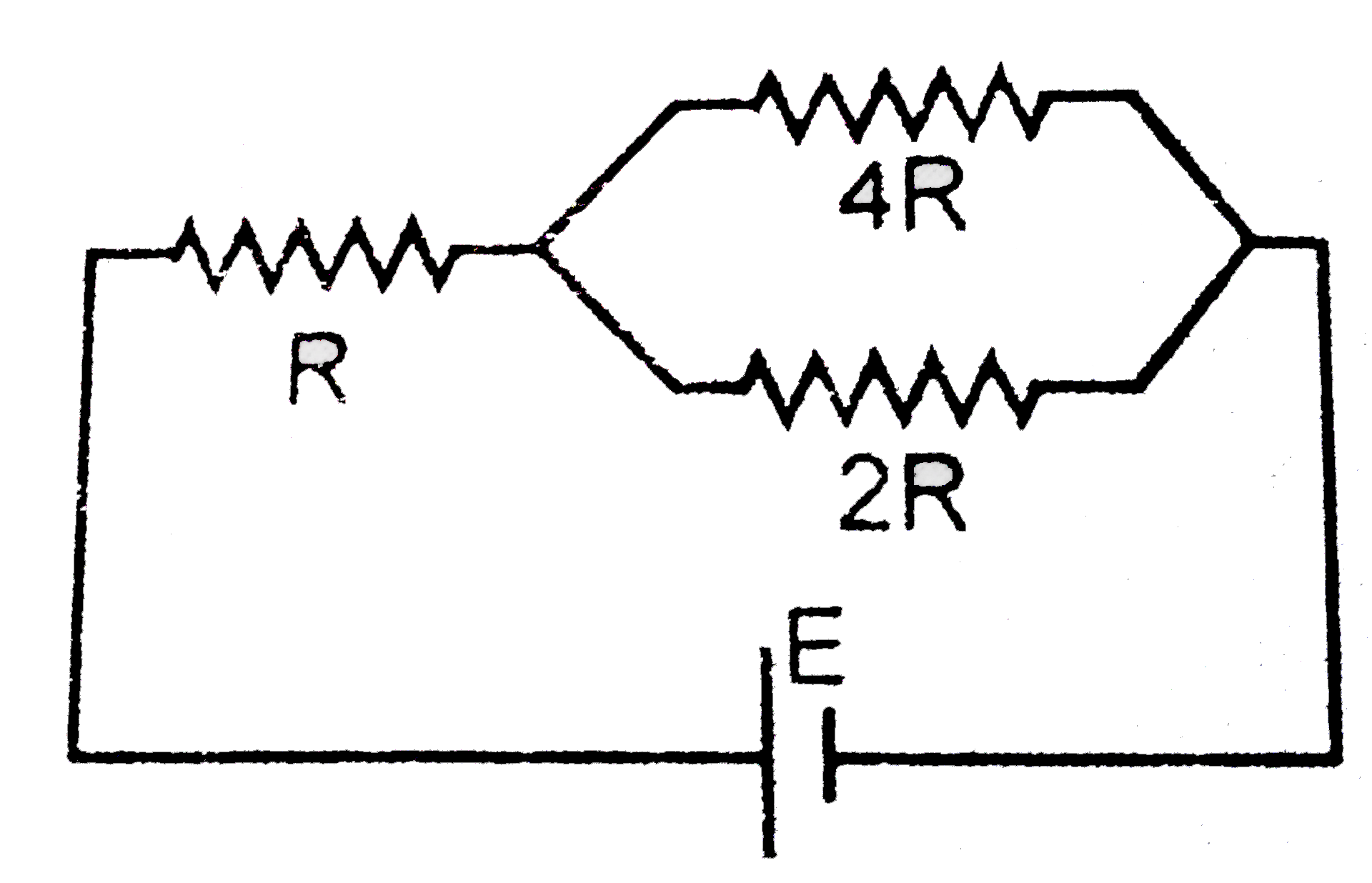 A2EB4E7CE7DE
A2EB4E7CE7DE
in the circuit shown in the figure, each battery is of 5 V and has an internal resistance of 0.2 Omega What is the reading of the ideal voltmeter V
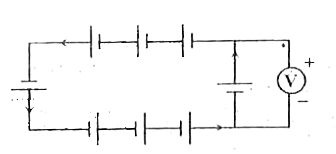
View SolutionA cell of emf ε and internal resistance r gives a current of 0.5 A with an external resistance of 12Ω and a current of 0.25 A with an external resistance of 25Ω. Calculate (a) internal resistance of the cell and (b) emf of the cell.
View SolutionIn the electric circuit shown each cell has an emf of 2 V and internal resistance of 1Ω. The external resistance is 2Ω . The value of the current is (in A)
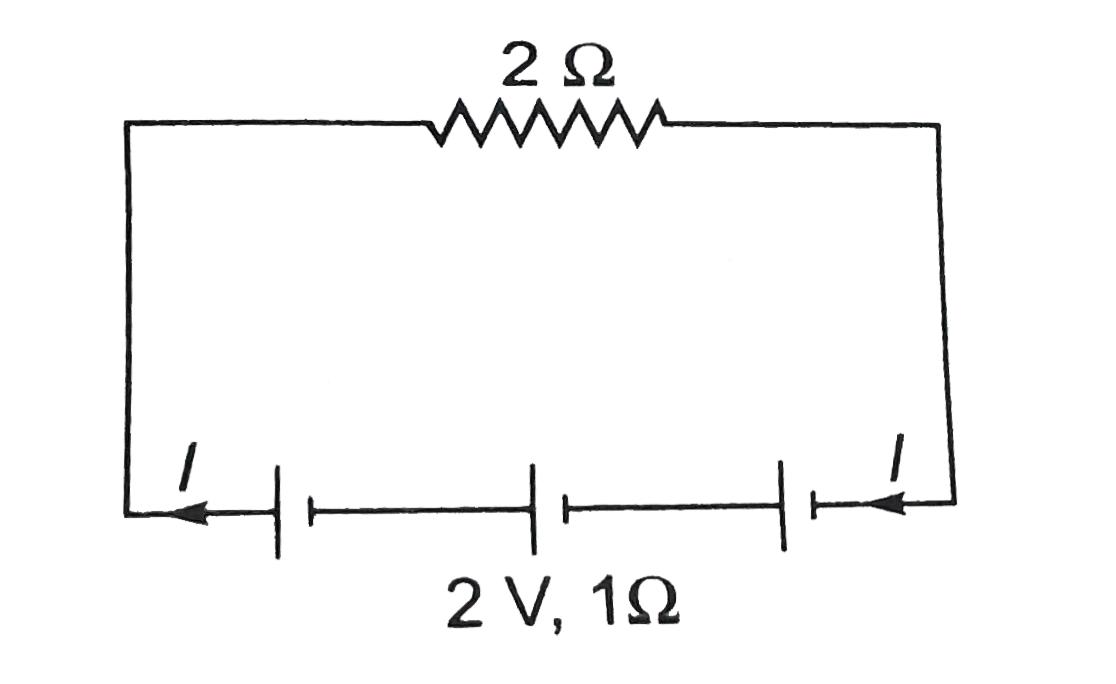
View SolutionThree cells are connected to an external resistance as shown in the figure. Each of the cells has emf 10 V and internal resistance 2Ω.
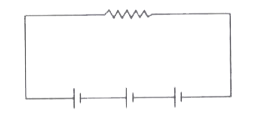
If the external resistance is 6Ω. Find the current in the circuit.
View SolutionIn the circuit shown below, the cell has an e.m.f. of 10V and internal resistance of 1ohm. The other resistances are shown in the figure. The potential difference VA−VB is
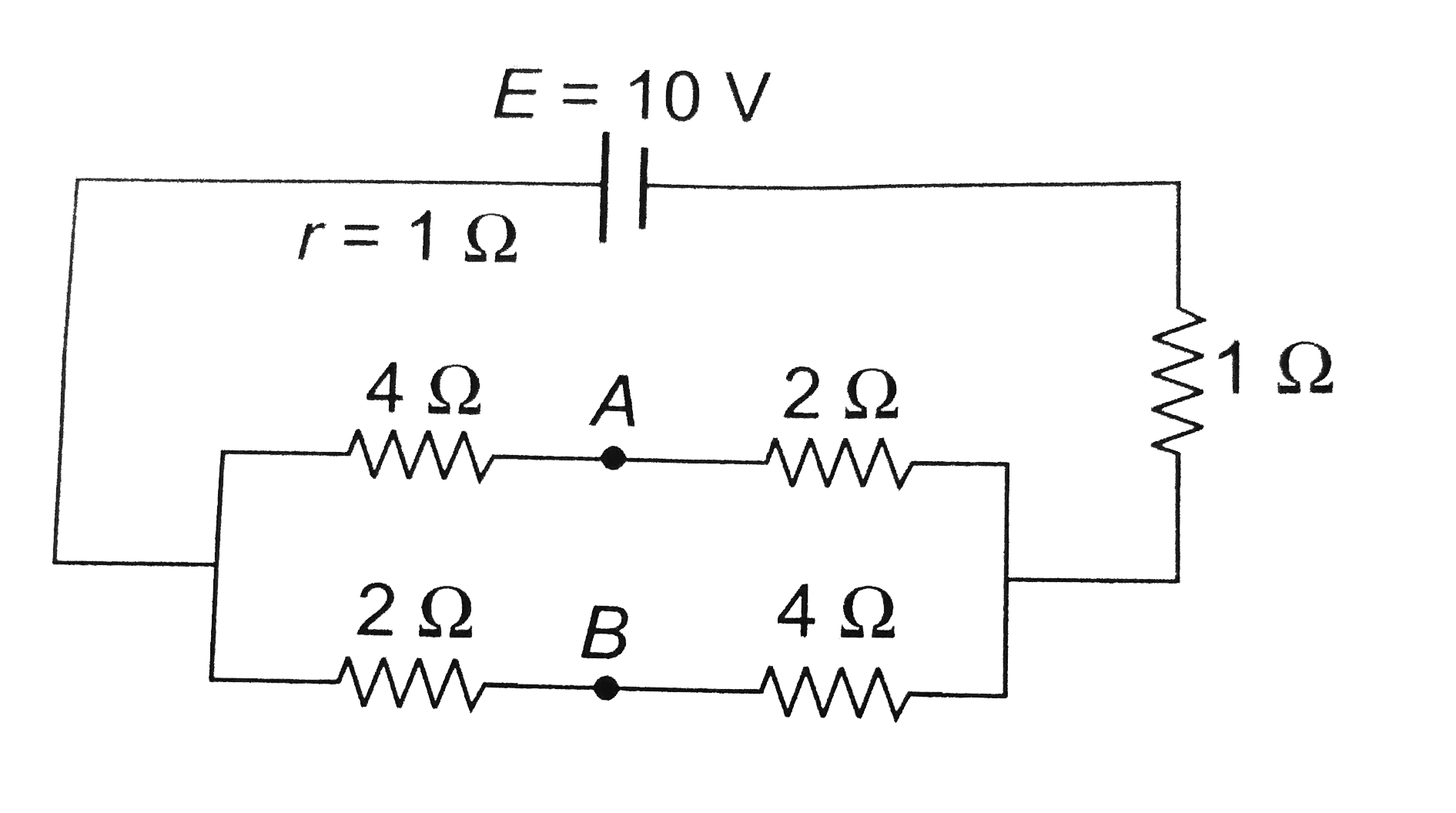
View Solution
